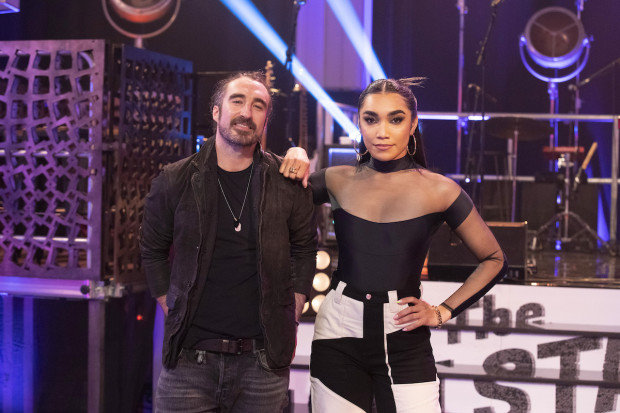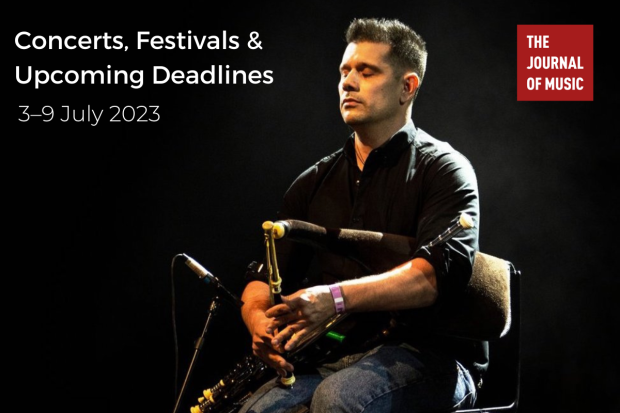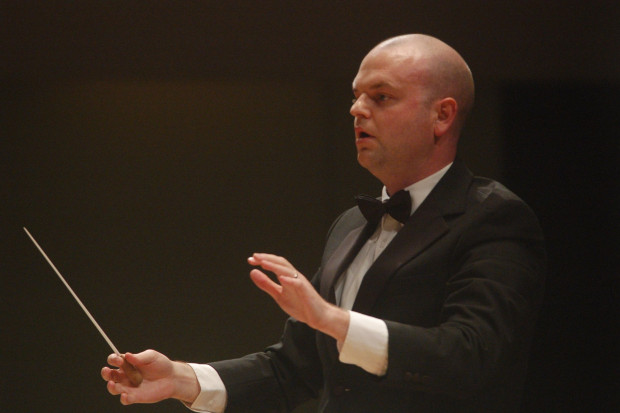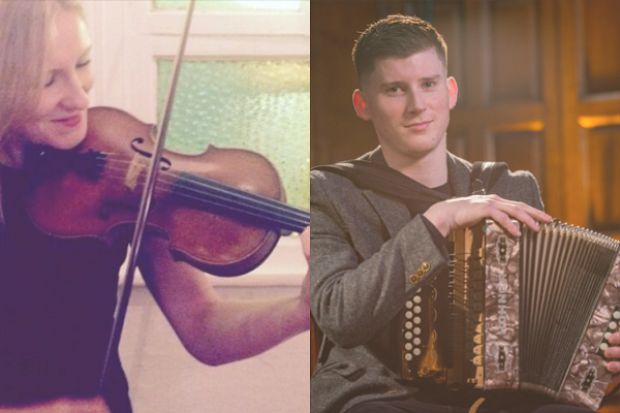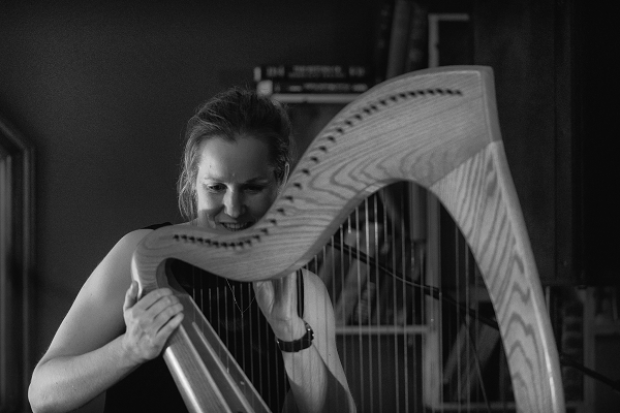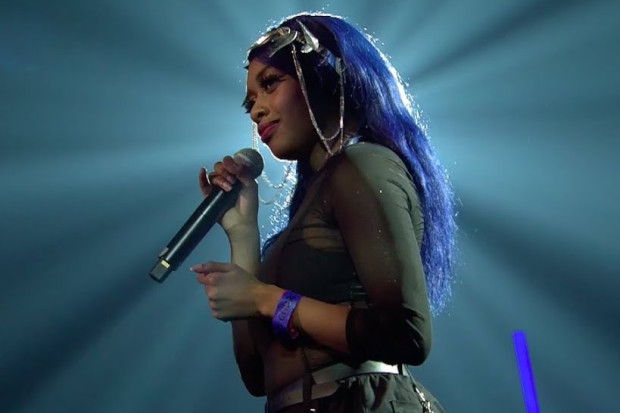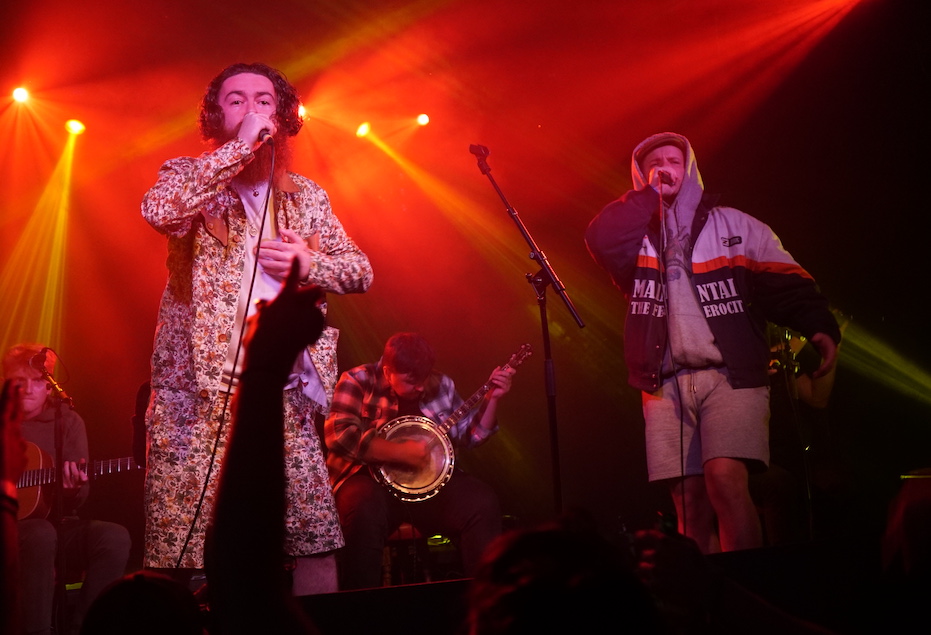
Hazey Haze and Strange Boy in 'Éire Eile' (Photo: Cian Wood)
Unconventional Éire
If there is a lesson or, dare I say, a message to be gleaned from TG4’s new documentary series Éire Eile, it’s that there is both a group or outlet for everyone.
The topic of subcultures was recently explored in 2019 and 2021 on RTÉ’s bilingual series My Tribe – Mo Threib, but where that looked exclusively at the phenomenon through the prism of musical movements and genres Éire Eile, possesses a broader remit in its coverage of subcultures and scenes, which also include League of Ireland football supporters and wheelchair basketball players.
To a jaundiced viewer, My Tribe – Mo Threib illustrated how fixed, or even calcified, some subcultures can be and how gripped they are by nostalgia. Music trends and fashion styles are certainly cyclical, if not enduringly linear.
Eschewing the slightly distanced and observational approach of My Tribe – Mo Threib, with its disembodied narrator and hushed David Attenborough tones, Éire Eile, the brainchild of Galway-based Black Gate Productions, has as its guide Cóilí Collins, an enthusiastic host who, with his buttoned-up shirts and Harrington jacket, could have stepped out of the My Tribe – Mo Threib episode on ska music. But Collins is more eclectic than that. Coming from Conamara, he is best known as dance music DJ Shampain as well as a co-founder of the Galway-based G-Town Records label with house and electro DJ and producer KETTAMA. Despite his protests to the contrary in one episode, Collins’ changing hair colour, often within the space of one programme, feels in tune with a series that is capable of leading you down surprising avenues.
Belfast queer punk
In many cases Éire Eile manages to get onto the intersections and into the fissures of contemporary subcultures. No more so than in episode 1, where in the process of exploring the queer punk scene of Belfast he speaks to artists and bands and visits the queer bookshop and barbers Paperxclips. Collins opens the programme by declaring his enthusiasm for punk. Problem Patterns’ Ciara King says the band was founded as a rebuttal to the heteronormative and very male 80s punk scene, as if the underground feminist 90s Riot Grrrl movement, of which they are certainly aware, never happened.
Collins’ question posed throughout the episode as to why the queer and punk ethoses overlap in Belfast in such a pronounced way receives a variety of responses, but none more appropriately blunt as AJ from Gender Chores’ exclamation of ‘DUP’. Problem Patterns’ Beth sheds an interesting light on the topic by acknowledging that it’s in their roots, aligning it with the working class struggle during the Troubles. They’re equally angry about their rights; they just happen to be queer.
In that, and in the images of the Halloween ‘Punkoween’ gig at Belfast’s wonderful Oh Yeah Music Centre, a spirit, energy and sense of transcending boundaries that had previously been captured in John T. Davis’ Shellshock Rock documentary (1979) and Lisa Barros D’Sa and Glenn Leyburn’s Good Vibrations (2013) was apparent.
Episode 3, titled ‘Fréamhacha’ (‘Roots’), approached traditional music, a subject Collins from the outset confesses his difficulty in getting to grips with. Even so, he acknowledges the influence of traditional music on rock, rap and electronic music. Providing a gateway into this world is Daithí Ó Drónaí, a north Clare musician whose family is steeped in traditional music and who has incorporated the instrumentation and textures of that into his lively brand of electronica.
Described by Collins as the poster boys for traditional music in Ireland, the popular Mary Wallopers also feature. But just as Daithí alludes to the dichotomy that exists between the purist and more open-minded approaches to Irish traditional music the Dundalk outfit hark back to a folk idiom unencumbered by any need for musical innovation and fuelled by a desire for ‘the craic’. If Collins had any doubts to begin with, he had by the end of the programme the appearance of a convert.
At a crossroads
A greater demonstration of traditional music’s ability to draw something new from its rich well was found in episode 5. Titled ‘Seanchaithe’ (‘Storytellers’), it saw Collins venture to Limerick, home of the most interesting developments in Irish hip-hop. In the wake of trailblazers like Rusangano Family and Denise Chaila, the city has birthed some bracingly original artists such as Hazey Haze and Strange Boy, who don’t look like, much less sound like, what you imagine your typical MC or rapper should. Clare’s Ushmush, whose blending of the Caribbean sound with Irish lyrics shows he knows something about defying categorisation, puts it best when he says: ‘The music of Strange Boy, and the music of Limerick at the moment, is in a place at a crossroads, where blues, hip-hop and club music and experimental music influence each other.’ With his use of live instrumentation, incorporating flute, banjo and bodhrán, Strange Boy could easily have appeared on the traditional music episode. And their duel performance of the Hazey Haze number ‘Glass of Patrick’ provides grotesque theatre in the finest tradition of Flann O’Brien.
Not thinking about art and culture
Titled ‘Oíche’ (‘Night’), the eighth and final episode of the series is billed as focusing on Give Us The Night, the group campaigning on a reform in the licensing laws that would bring Ireland into line with the night time culture and economy available in cities like London and Berlin. While featuring a brief interview with DJ and Give Us The Night spokesman Sunil Sharpe, the thrust of the episode dealt with Collins’ personal DJ reminiscences of Dublin clubbing.
Collins chooses to commence the programme at Busáras, dismissing the well-acknowledged modernist architectural icon as an ‘ugly bus station’. Perhaps our host is drawing oblique parallels with Bus Éireann’s plan to finally do away with its shuttered basement cinema-cum-theatre space as well as its surrendering of what must have been an elegant rooftop restaurant and nightclub venue to the Department of Social Welfare, seeing them as shortsighted betrayals of architect Michael Scott’s vision of the building as a bustling, multipurpose civic space. Or perhaps I am giving him too much benefit, so I must refer once again to the lack of context and an editorial line.
Regardless, his frustration is evident as he bemoans the number of beloved club spaces that have been sold and closed down, such as the Hangar nightclub and District 8. ‘People are neither talking nor thinking about art, about culture,’ he fumes, clearly wearing his passion on his sleeve. It’s a tale repeated in Ireland’s other main cities. Coincidently, at the time of broadcast, the Hangar Facebook page posted an enigmatic message teasing a possible return. But where?
Historical European martial arts, wheelchair basketball and drag culture in Cork and Galway also feature in a series that seeks to communicate a positive celebration of inclusion, representation and diversity. But alongside the episode on Bohemian Football Club, it is the music-based episodes that are the most multi-faceted. They pack as much in their around the quarter of an hour running time as a conventional 30-minute programme. Only the episode on historical martial arts began to drag, and that was the shortest of the lot.
Its refusal to employ a narrative voiceover or surtitled text can result in a lack of context. As the series seems to have been recorded last October, the viewer is left with neither an indication of where the campaign on reforming the licensing laws currently rests nor an idea of the current state of the Sale of Alcohol Bill 2022. On the other hand we get an illuminating and immersive snapshot of some exciting communities that exist outside the mainstream.
‘I’m actually in the trenches,’ declares our host before throwing himself into a drag makeover, and we also see Collins crowdsurf at one of his own gigs. Given that the title music is supplied by composer and techno producer ELLLL, one might have expected a programme on Gash Collective, the support organisation she founded for female, trans, queer and non-binary people interested in DJing and music production, and the similarly minded Sounding the Feminists. Perhaps that subject as well as any number of wonderful groups await us in a possible second series.
To view Éire Eile, visit www.tg4.ie or TG4’s YouTube channel.
Published on 29 June 2023
Don O'Mahony is a freelance arts journalist based in Cork.










